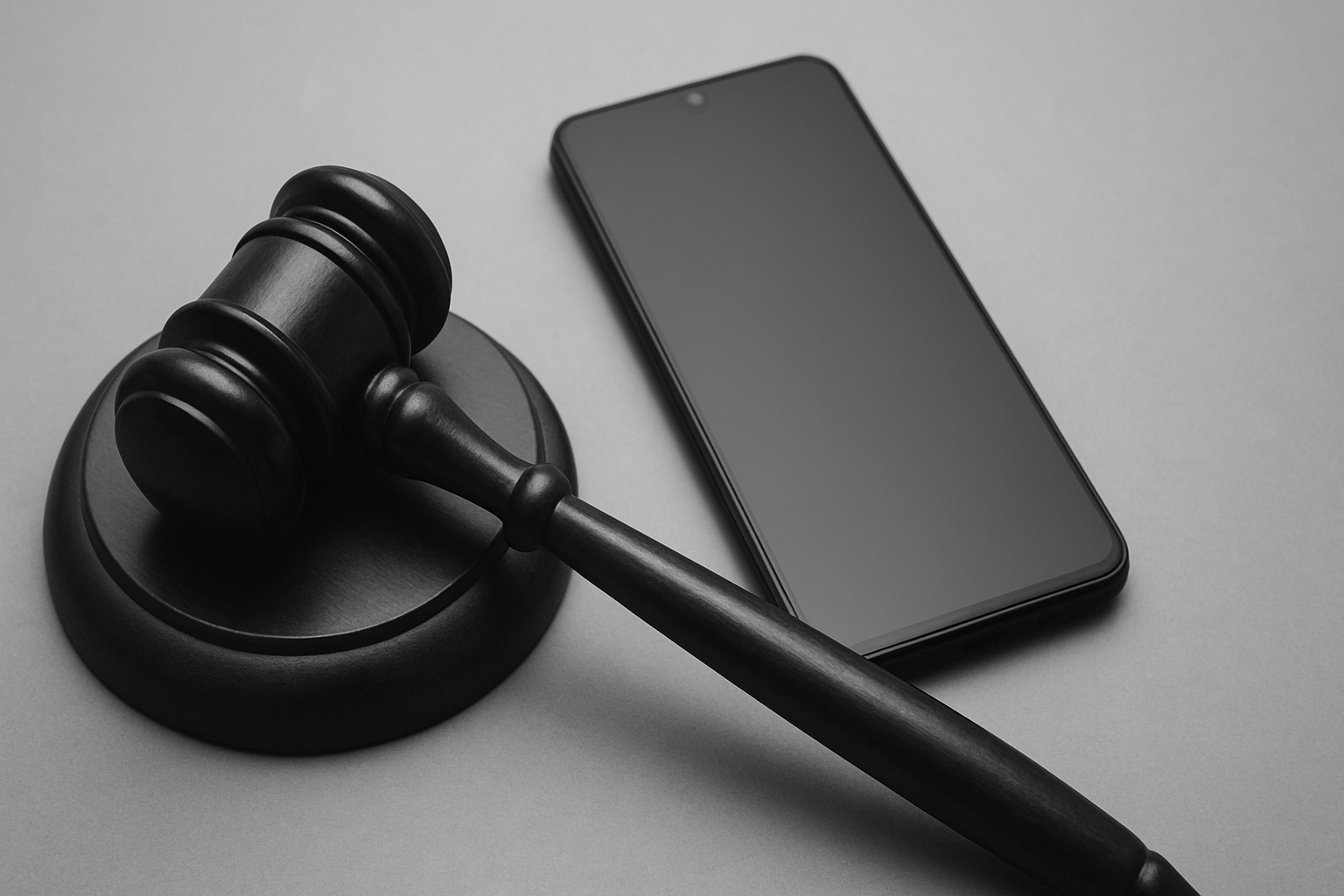
Can Police or Security Agencies Search or Confiscate Your Phone in Nigeria?
Short answer: Not arbitrarily. Nigerian law protects privacy and requires law enforcement agencies to follow constitutional and statutory procedures before they can search your phone or keep it. Agencies can seize devices in certain investigations, but they must follow due process, usually a court warrant or statutory procedure, and courts have, in practice, ordered return of phones seized unlawfully. (Sources: Nigerian Constitution s.37, ACJA 2015, EFCC Act, Sowore v DSS, Oyo State High Court 2025)
What the Constitution and Criminal Procedure Say
Constitutional protection: Section 37 of the 1999 Constitution guarantees the privacy of citizens’ homes, correspondence and telephone conversations. This is the baseline right that limits arbitrary state intrusion.
Criminal procedure: The Administration of Criminal Justice Act (ACJA) 2015 and similar state ACJ laws regulate search warrants and how law enforcement should obtain and execute searches. A valid search typically requires judicial authority (a warrant) unless a narrow statutory exception applies.
What the EFCC, Police and DSS Can Do (and Limits)
Police: Police officers may lawfully search when they have a warrant, when they lawfully arrest a person (limited search incident to arrest), or where specific statutory exceptions apply. However, internal police directives and recent practice discourage indiscriminate phone searches, and courts have ruled against unlawful searches.
EFCC: The EFCC has statutory power to seize property and to apply for interim forfeiture orders under the EFCC Act where property is linked to economic crimes. But seizure or retention is expected to follow the Act’s procedures (court applications, interim orders) an agency cannot simply keep a phone indefinitely without court oversight.
DSS and other security agencies: Agencies like the DSS have broad powers in national security matters, but they are still bound by the Constitution and the courts, and courts have ordered the return of phones seized unlawfully. Case law shows judges will intervene where seizures are not properly authorised.
Recent and Important Cases / Rulings (Examples)
- Sowore v DSS (Federal High Court, Abuja, 2021): The court ordered the DSS to return Omoyele Sowore’s seized phones and awarded damages, finding the seizure unlawful. This is a high-profile example where the court enforced constitutional privacy protections.
- Oyo State High Court (2025): The court declared mandatory seizure of visitors’ phones at EFCC office gates unlawful — signalling courts will scrutinise blanket device-forfeiture policies by agencies.
- Judicial trend: Nigerian courts consistently require judicial oversight for seizure or retention of personal devices, and have relied on constitutional privacy guarantees and statutory search-warrant rules in ACJA.
Practical Rights — What You Should Know and Do
- Ask politely for legal basis: If an officer asks to search your phone, ask whether they have a search warrant or your consent. You may refuse consent. If they insist without warrant, record (audio/video) the interaction if it is safe to do so.
- If arrested: There are limited search powers incident to arrest, but courts have said phone data searches usually require a warrant unless an emergency or exigent circumstance exists.
- If your phone is seized: Ask for a receipt identifying the items taken and the legal basis; seek a lawyer; you can file a complaint and, where appropriate, bring a court action for recovery and damages. Court precedents show this approach has succeeded.
- EFCC/DSS seizures: These agencies often rely on statutory powers to seize devices; challenge retention if no court authorization is shown or if procedure is not followed.
Bottom line: The law protects phone privacy. Security agencies can seize devices in limited, lawful circumstances — but they must comply with constitutional and statutory safeguards and, often, obtain court orders for continued retention or forfeiture. Recent high-profile rulings show courts will enforce those safeguards.
Legal disclaimer: This article summarises public law sources and reported cases for general information only. It is not legal advice. For case-specific guidance, consult a qualified Nigerian lawyer.
